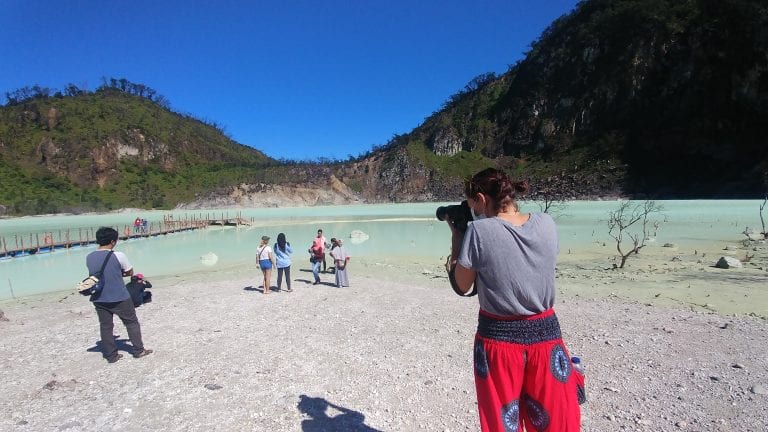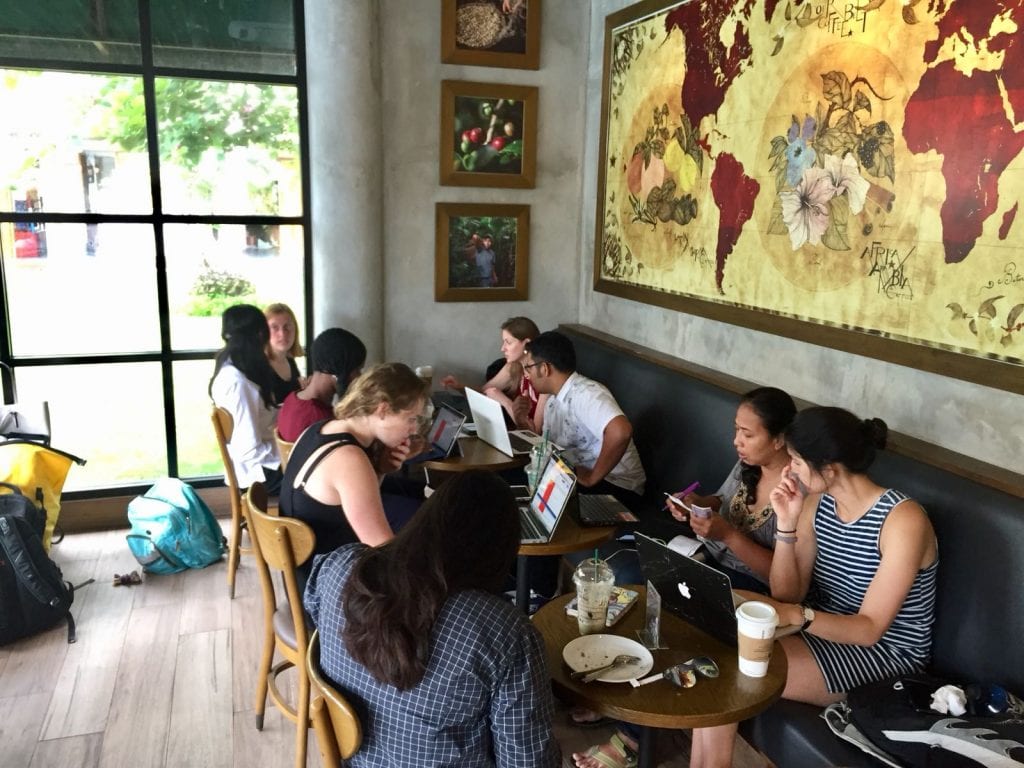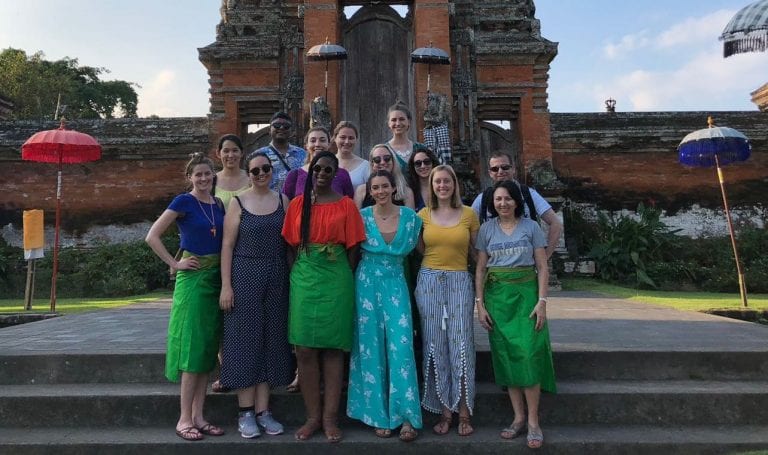
Month: August 2018
PUTTING CLASSROOM LESSONS INTO PRACTICE IN INDONESIA: STUDENTS CONSULT IN POPULAR TOURISM DESTINATIONS OF BALI AND BANDUNG
Bali’s palm-fringed Kuta beach, a former fishing village, has become one of Indonesia’s major tourist destinations. Last year, one in three of the country’s 13.7 million overseas tourists went to Bali.
While the influx of visitors has been a boon for the local economy, tourism is taking its toll on the local environment. Kuta beach is now drowning in a sea of plastic garbage, which is so overwhelming that earlier this year, local officials declared a “garbage emergency” across a 3.7-mile (6-km) stretch of coast. While much of the waste washes in from the sea, it’s also generated by tourists and residents. Bali’s infrastructure is just not equipped to handle so many people.
Trash disposal is only one challenge posed by overtourism, the recently coined term for too many visitors, which has become a rampant problem that’s plaguing popular destinations around the world. To help them deal with with their particular tourism challenges, George Washington University students and faculty working under the auspices of the International Institute of Tourism Studies recently went to Bali and Bandung—the capital of West Java— to conduct assessments and make recommendations for future development. The consulting project took place at the invitation of and in collaboration with student counterparts from STP Bali and STP Bandung, local universities whose Colleges of Tourism falls under the auspices of the Ministry of Tourism.
“While tourism brings many economic benefits to the island, it’s also creating pressure on local resources and contributing to major environmental problems such as pollution, water depletion, and waste and water management issues,” explains Taylor Ruoff who was among the group of GWU student consultants.
The team of twelve, which included students from the Masters of Tourism Administration program along with one student who is earning her Masters in International Education, used the Global Sustainable Tourism Council (GSTC) Criteria for Destinations as the basis for their assessment in Bali. These criteria are designed to help tourism destinations and businesses protect and maintain natural and cultural resources, maximizing social and economic benefits for host communities and the environment.
The students made a preliminary presentation of their findings and recommendations in Bali at the 2018 Forum for International Tourism & the Environment (FITE), an annual forum that draws students from Indonesia and around the world to participate in yearly competitions and international conferences on tourism and sustainability. They commended the many businesses on the island that had joined the voluntary certification program Tri Hita Karana, which requires that members uphold specific certification practices, and they also cited a couple of temples in particular that were at risk due to overcrowding.
For their work in Bandung—a large city on the island of Java that mostly draws domestic tourists for its commercial, cultural and culinary attractions—the GWU students worked with graduate students from STP Bandung. Together, they assessed the tourism situation in the outlying villages of Jelekong and Alamendah and offered recommendations for improving community-based offerings for tourists, including homestays with local families.
The students presented their findings to community members and government officials from the two villages. “We’d learned in destination management classes about the benefits of bringing together diverse groups of tourism stakeholders with competing opinions and priorities,” explains Ruoff. “Seeing the discussions unfold in-person was eye-opening. You have government officials looking to bring more people and revenue into the town. You also have locals, whose families have always lived in the villages and they don’t necessarily see the benefits of tourism. It’s difficult to make everyone happy. We tried our best to reflect the interests of all stakeholders in our presentation and final report.”
To discuss solutions to various challenges that Indonesia’s tourism industry faces, Anang Sutono, Senior Advisor to the country’s Ministry of Tourism, will be speaking at the World Tourism Day Forum Overtourism: Seeking Solutions. The event, a joint initiative of GW’s International Institute of Tourism Studies and the Center for Responsible Travel, will take place in the Jack Morton auditorium on September 27th. Click here to learn more.






